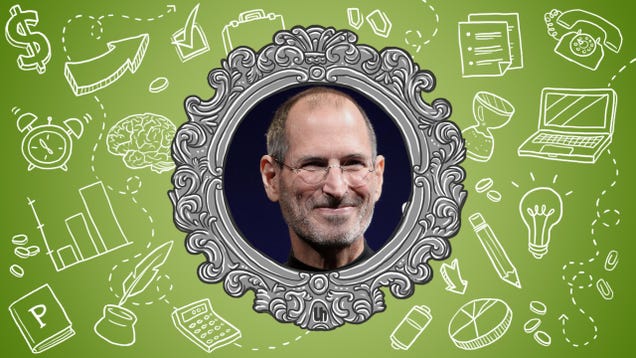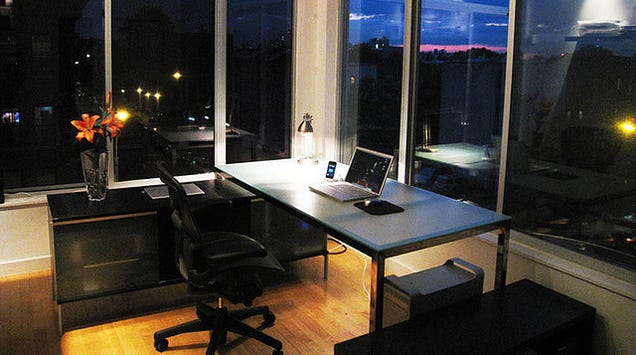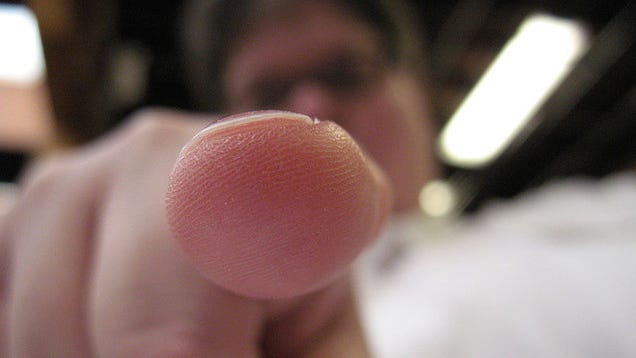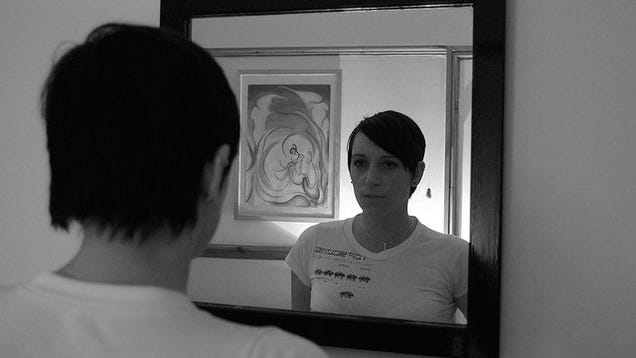Steve Jobs' Best Productivity Tricks

Regardless of how your feel about Apple, Steve Jobs was an incredibly prolific CEO who was more than just the face of the company. Before his death in 2011, he managed to change the face of Apple and provide a unique workplace lauded for its productivity. Let's take a look at just a few of the ways he did it.
Jobs was certainly a complicated person and for every genius idea he had plenty of bad ones. His management style was confrontational, he was rude, and his Authoritarian outlook on Apple's openness is well known. In short, he was a jerk who was tough to work with. Still, he managed to change the face of a company and push for innovation in the marketplace. He helped shape Pixar in the '90s and brought the failing Apple corporation back to life when he returned in 1997.
Get Rid of the Crappy Stuff and Focus on What Matters

When Jobs returned to Apple in 1997, he walked into a company struggling to sell its wide variety of products. One of Jobs' first moves as the new CEO was to reduce the number of products sold by Apple. Jobs condensed Apple's offerings and made it easy to pick a Mac. From there, it branched out to introduce the iPod, iPhone, and iPad, but has always kept their main product line limited to just a few different choices.
Jobs didn't just do this with Apple. He'd pass along the advice to just about anyone who asked. He told Nike to cut the crappy stuff as well:
"Do you have any advice?" Parker asked Jobs. "Well, just one thing," said Jobs. "Nike makes some of the best products in the world. Products that you lust after. But you also make a lot of crap. Just get rid of the crappy stuff and focus on the good stuff." Parker said Jobs paused and Parker filled the quiet with a chuckle. But Jobs didn't laugh. He was serious. "He was absolutely right," said Parker. "We had to edit."
Jobs' point here can easily be applied to everyday life. If you have too much going on, start saying no more often. Get rid of any activities that aren't actually helping you in your career and life. If you have too much going on, focus in on what matters.
Delegate Responsibilities

Of course, focusing on what matters is easier said than done. Jobs had a system for making sure people could do their best work by ensuring that everyone was working on what they should be and nothing else. During meetings Jobs would assign tasks and a person responsible for them. The hope was that with proper delegation, everyone would work on what they're supposed to and not have to worry about anything else. Wired sums it up:
There's no excuse for employees to have any confusion after a meeting. An effective Apple meeting will include an "action list," and next to each action item is a "DRI" — a directly responsible individual who must ensure the task is accomplished.
For the rest of us, the lesson here is about delegation. In order to do your best work, you need to stop multitasking and concentrate on one task at a time. The more things you can delegate, the more time you have to work on what matters.
Get More Life Experiences
Focusing on your tasks doesn't mean you have to close the rest of the world out though. It's surprisingly easy to put your head down and specialize on one thing throughout your life and career, but Jobs reminds us in his commencement speech at Stanford that it's good to look around sometimes to broaden your skillset:
Reed College at that time offered perhaps the best calligraphy instruction in the country. Throughout the campus every poster, every label on every drawer, was beautifully hand calligraphed. Because I had dropped out and didn't have to take the normal classes, I decided to take a calligraphy class to learn how to do this. I learned about serif and san serif typefaces, about varying the amount of space between different letter combinations, about what makes great typography great. It was beautiful, historical, artistically subtle in a way that science can't capture, and I found it fascinating.
None of this had even a hope of any practical application in my life. But ten years later, when we were designing the first Macintosh computer, it all came back to me. And we designed it all into the Mac. It was the first computer with beautiful typography. If I had never dropped in on that single course in college, the Mac would have never had multiple typefaces or proportionally spaced fonts. And since Windows just copied the Mac, it's likely that no personal computer would have them. If I had never dropped out, I would have never dropped in on this calligraphy class, and personal computers might not have the wonderful typography that they do. Of course it was impossible to connect the dots looking forward when I was in college. But it was very, very clear looking backwards ten years later.
The idea that creativity is about connecting dots isn't anything new here, Jobs outlined it more in an interview in Wired:
Creativity is just connecting things. When you ask creative people how they did something, they feel a little guilty because they didn't really do it, they just saw something. It seemed obvious to them after a while. That's because they were able to connect experiences they've had and synthesize new things. And the reason they were able to do that was that they've had more experiences or they have thought more about their experiences than other people.
Unfortunately, that's too rare a commodity. A lot of people in our industry haven't had very diverse experiences. So they don't have enough dots to connect, and they end up with very linear solutions without a broad perspective on the problem. The broader one's understanding of the human experience, the better design we will have.
Which is to say, the more diverse your experiences, the better. We've talked about this plenty of times before, but it's always worth repeating. The more time and money you spend on diversifying what you do, the better off you'll be.
Assess Your Life Daily and Change When You Need To

In that same commencement speech, Jobs also outlined his biggest motivation in life: death. That sounds a bit morbid, but it's what kept him interested in the world:
When I was 17, I read a quote that went something like: "If you live each day as if it was your last, someday you'll most certainly be right." It made an impression on me, and since then, for the past 33 years, I have looked in the mirror every morning and asked myself: "If today were the last day of my life, would I want to do what I am about to do today?" And whenever the answer has been "No" for too many days in a row, I know I need to change something.
Remembering that I'll be dead soon is the most important tool I've ever encountered to help me make the big choices in life. Because almost everything — all external expectations, all pride, all fear of embarrassment or failure — these things just fall away in the face of death, leaving only what is truly important. Remembering that you are going to die is the best way I know to avoid the trap of thinking you have something to lose. You are already naked. There is no reason not to follow your heart.
Jobs point here isn't to just quit your job and not do the laundry—we all have days filled with doing things we don't want to do—but when those days outnumber the good ones, it's time to reassess. If things aren't looking so good, it's probably time to switch careers.
Photos by Mackenzie Kosut, A2gemma, and Clare Bell.
Enviado desde mi iPad
Comentarios